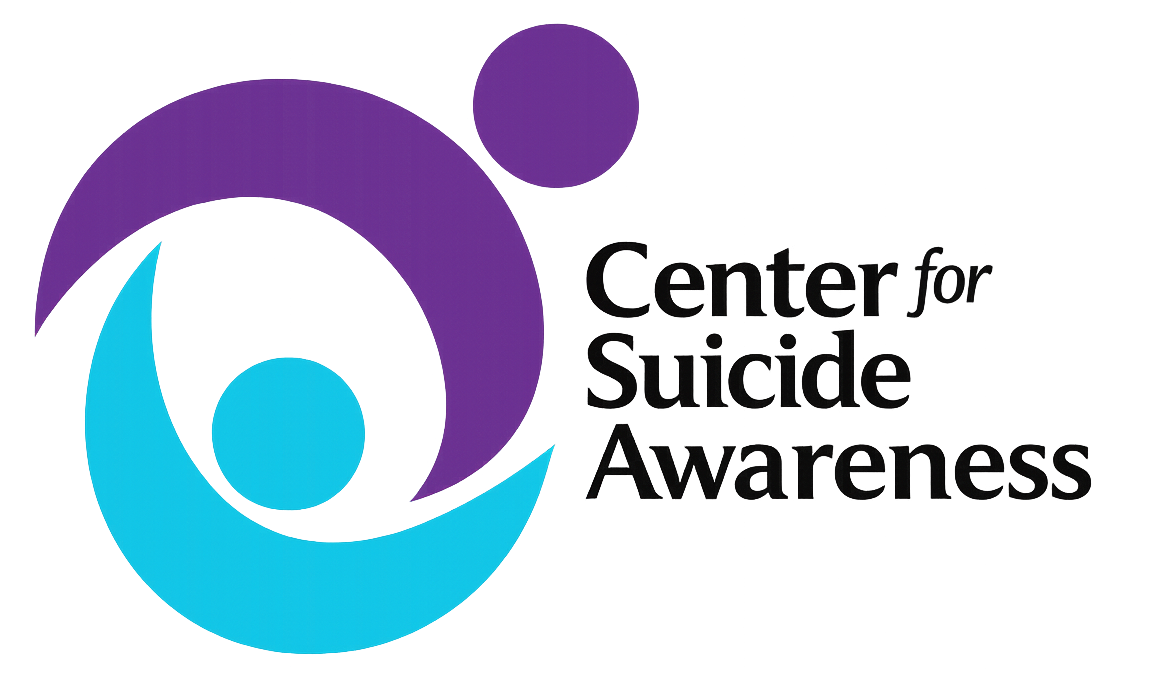44 Veterans a Day: The Weight of Words and the Battle Beyond Service
Sep 08 2025 03:29
Renee Kasuboski
44 Veterans a Day: The Weight of Words and the Battle Beyond Service

A 2022 study revealed a harrowing truth: when overlooked causes like overdose deaths linked to suicidal behavior are included, an estimated 44 veterans die by suicide every single day —about 2.4 times higher than the official VA estimate ( Military Times , Mission Roll Call ).
That adds up to:
- 308 a week
- 1,233 a month
- 16,060 a year
- 80,300 in 5 years
- 160,600 in 10 years
These numbers are devastating. These are not just statistics—they are our brothers and sisters, our friends, our neighbors.
And these numbers don’t even include police officers, firefighters, or EMTs. Every one of these professions is essential to our neighborhoods and our nation. They are the people who show up on our darkest days, handling the most difficult moments of our entire lives. They all answered the call.
Why Suicide Rates Are So High
There is no single reason for this heartbreaking epidemic. The truth is that it’s a storm of multiple factors:
- Invisible injuries: PTSD, C-PTSD, traumatic brain injuries, chronic pain, exposure to toxins like Agent Orange and burn pits.
- Daily pressures: Marital stress, divorce, custody disputes, job loss, unemployment, financial strain.
- System failures: VA backlogs, delays in care, wrong medications, lack of timely treatment, or conflicting prescriptions.
- Isolation and loss of purpose: Transitioning out of the military or emergency services can feel like stepping off a cliff into disconnection.
- Coping through numbing: Alcohol, drugs, caffeine, or even over-exercising through injury—behaviors that can spiral into addiction.
- Stigma: Shame, judgment, or dismissal—sometimes from society, sometimes from fellow veterans or responders—adds weight to an already unbearable load.
In fact, recent data shows the suicide rate in the first year after separation is especially high— 46.2 per 100,000, compared to 34.7 overall ( RAND ). And as journalists have pointed out, “one story does not fit all” when it comes to suicide ( Health Journalism ). It is not just combat trauma—it’s the web of daily pressures, systemic struggles, and societal stigma that silently push people toward despair.
The Weight of Words: Stigma Hurts
Mental health and suicide prevention are not only about programs or hotlines—they are also about how we treat each other. Words can either heal or harm.
Too often, veterans and first responders hear things like:
- “I can’t possibly be a veteran because I’m a woman.”
- “If you didn’t serve in combat, you’re not a real veteran.”
- “Because you have a service dog, you must be lonely and miserable.”
- “If you need therapy or meds, you’re broken.”
- “You signed up for this—stop complaining.”
- “Real cops, firefighters, or EMTs don’t cry.”
- “If you need therapy, you’re not fit for duty.”
- “It’s just part of the job—suck it up.”
These comments are not just careless—they are dangerous. Veterans and first responders already carry invisible injuries, trauma, and stress. To then face ridicule, sexism, or dismissal only drives the knife deeper.
Flip the Script: What We Should Say Instead
Imagine if we chose compassion instead of criticism. Here’s how we can flip the script:
- Instead of “You’re not a real veteran unless you served in combat,” say: “Every role matters. It takes the whole team to complete the mission.”
- Instead of “Because you have a service dog, you must be miserable,” say: “Your service dog is a loyal partner. I’m glad they’re by your side.”
- Instead of “You signed up for this—quit complaining,” say: “Your service is meaningful, and it’s okay to talk about how hard this is.”
- Instead of “Real first responders don’t cry,” say: “You’re human. Showing emotion is courage, not weakness.”
- Instead of “Therapy means you’re unfit for duty,” say: “Taking care of your mental health helps you keep doing the work you were called to do.”
 If you wouldn’t say it to someone standing on the edge, don’t say it at all.
Flip the script. Offer encouragement. Be the reason someone chooses to stay.
If you wouldn’t say it to someone standing on the edge, don’t say it at all.
Flip the script. Offer encouragement. Be the reason someone chooses to stay.
Solutions: What We Can Do
The suicide crisis is overwhelming—but it is not hopeless. Together, we can act:
- Check in and stay present
Don’t wait for someone to reach out. Be the one to call, to text, to sit with them in silence if needed. - Normalize help-seeking
Make therapy, peer support, and wellness resources part of the conversation. Seeking help is strength, not weakness. - Connect to resources
Know where to turn—and share that knowledge widely (see below for trusted organizations). - Advocate for better care
Push for policies that improve mental health services, staffing, and access for veterans and first responders. - Break stigma daily
Challenge harmful comments. Model compassion. Remind people that no one is broken for struggling.
Where to Turn for Help
You are not alone. Veterans, service members, first responders, and their families have access to a powerful network of organizations that provide peer support, benefits guidance, wellness programs, and crisis help.
Veteran & Military Support
- Center for Suicide Awareness – Home of HOPELINE™ (Text 741741), offering 24/7 confidential emotional support, education, and resources.
- Fox Valley Warrior Aid Alliance – Provides Warrior Response Tool Kits, peer support, and veteran/first responder-focused mental health resources in Wisconsin.
- National Veteran Service Officers Directory – Find a trained VSO to help with VA claims and benefits.
- Fox Valley Veterans Council – Emergency financial help and community support.
- Mission 22 – PTSD, TBI, and family support programs.
- Wisconsin Veterans Village Association (WiVVA) – Veteran housing and supportive communities.
- Outagamie County Veterans Service Office – County-level benefits support.
- The Wellness Command Post – Tools for resilience and wellness.
- Veterans 1st of Northeast Wisconsin – Local resources and referrals.
- HOOAH Wisconsin – Outdoor camaraderie and peer healing.
- Operation Horses Heal – Equine-assisted therapy.
- Espiritu Horse – Horse-based resilience and healing.
- Guitars 4 Vets – Free guitars and lessons for veterans with PTSD.
- A Call to Shoulders – Inspires veterans to share their stories and connect through lived experiences.
- Camp Hometown Heroes – A camp for children of fallen service members, offering healing and connection.
- Fisher House Wisconsin – Free lodging for families of veterans receiving medical care in Milwaukee.
- Wisconsin American Legion – Camp American Legion – A retreat for Wisconsin veterans and families to heal and reconnect.
- Combat Veterans Motorcycle Association (CVMA) 45-3 – Veterans who ride motorcycles, united to support and defend fellow veterans.
- Creative Arts for Vets (Indiana University) – A program using art to help veterans heal and express their experiences.
- BRAVE Program – Medical College of Wisconsin – Research and treatment program focused on brain health for veterans.
- Shield of Sisters – A support network for women veterans and first responders who have experienced trauma.
- Center for Veterans Issues – Housing, supportive services, and advocacy for homeless and at-risk veterans.
- Heal the Hero Foundation – Resilience training and wellness programs for veterans, families, and first responders.
First Responder Mental Health & Family Support
- Center for Suicide Awareness – Provides 24/7 confidential support through HOPELINE™ (Text 741741), as well as specialized Master Resilience Training (MRT) courses designed for first responders, teaching practical tools to handle stress, trauma, and build resilience.
- National Fallen Firefighters Foundation – Firefighter Mental Health – Mental wellness resources for firefighters.
- Concerns of Police Survivors (C.O.P.S.) – Support for families and coworkers affected by line-of-duty deaths.
- VALOR Officer Safety & Wellness Program (BJA) – Federal program supporting officer resilience, wellness, and safety.
- Sworn.ai – Mental health and wellness tools tailored for law enforcement professionals.
How We Move Forward—Together
At Fox Valley Warrior Aid Alliance and the Center for Suicide Awareness, we believe in practical tools, trusted resources, and human connection. Whether through Warrior Response Tool Kits, resilience training, or the 24/7 confidential support of HOPELINE™ (Text 741741), we are building a safety net where no one slips through the cracks.
Final Word
If you or someone you know is struggling: Text
HOPELINE™ to 741741
to connect with one of our trained crisis counselors. (Every day, confidential, emotional support textline, 24/7, 365)
Text
HOPELINE™ to 741741
to connect with one of our trained crisis counselors. (Every day, confidential, emotional support textline, 24/7, 365)
Check on your battle buddies. Share the resources. Speak with kindness. Act with intention. Please don’t wait until it’s too late.
Together, we can stop the loss.
Together, we can save lives.
#VeteranMentalHealth #StopSuicide #FlipTheScript #FoxValleyWarriorAidAlliance #HopeLine #CenterForSuicideAwareness

